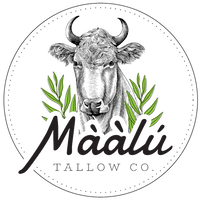The Pandemic called PUFAs + why I don’t use them in my products?

I believe we are living in a ‘PUFA Pandemic Era’ which is unfortunate because majority of the population is not even aware of the damage these cheap oils have done and continues to do to our bodies and degrading our health as a society.
I’ve simply adopted the mentality of ‘if my ancestors didn’t consume such, why then should I’. My ancestors lived healthy, long, and vibrant lives in comparison to my generation today. One rarely heard of diseases such as cancer or heart, or liver problems, neither were they plagued with obesity or diabetes. Not to undermine the gravity of these real issues today, but the rate at which these health issues are increasing is alarming! It causes me to look back and begin retracing my steps to a place of wholeness.
What then are PUFAs?
PUFAs are fatty acids lacking in stable hydrogen atoms. They are unstable therefore oxidize quickly when exposed to heat, light and air. Oxidization produces free radicals. Free radicals cause the aging of our cells, we are more prone to inflammation which wrecks havoc on our metabolism, digestive and immune systems and overall health. The more PUFAs we consume, the more exposed we are to these nasties. Due to the rigorous extraction process of these oils, most are already rancid even at the time of purchase.
I know the medical industry claims that these are good fats for us, and vegetable oil producers are making a killing with such backing, however, I utterly disagree. Research has shown just how dangerous these oils are for our overall health. Check out this article by Dr. Ray Peat.
My non-chemistry brain analyzes all that science jargon as this…since my forefathers didn’t eat factory created oils, why then should I? Every fatty acid contains a combination of SFA (saturated), MUFA (monosaturated) and PUFA (polyunsaturated). However, some contain a higher percentage of SFA and MUFA than PUFA, while others have a higher concentration of PUFA. This is why we would never claim to be PUFA-Free, instead we reckon that our products are very low in PUFAs.
Most purchased meals (even those at some high-end restaurants) are cooked with PUFA oils, baked goods including those in health food stores are plagued with PUFA oils, prepared foods on the grocery store shelves, not excluding the so called ‘healthy’ ones at the natural food stores all made using PUFA oils. Long story short, read your labels when shopping.
What are examples of PUFA oils?
Common PUFA cooking oils are vegetable oils such as Canola, Margarine, and Sunflower oils. Common PUFA oils in skincare are Rosehip, Hemp, Almond seed oils, among others. I don’t eat it, nor do I use it on my skin or in my products. All my products are created using Low-PUFA oils.
What then do we use in creating our products?
Saturated fats.
Fats such as Beef Tallow, Lard, Coconut Oil, amongst others are mostly SFA and MUFA with very low percentages of PUFA. They are stable when exposed to heat, light, and air. They retain their healthy prized qualities and composition while providing our bodies with wholesome nourishment.
Here is the list of oils/bases we use in our products:
- Beef Tallow – Grass-fed + finished local Ontario suet, sourced from small-scale farms. Using beef tallow for skin care is nothing new, as it is an age-old tradition that has always been for centuries. It is an essential fatty acid prized for its antimicrobial + anti-inflammatory properties. It is also an antioxidant, all of which bring healing and nourishment to our skin. My team and I slowly hand-render our tallow in our kitchen here in Vaughan, Ontario.
- Jojoba Oil – Biologically, a wax, jojoba oil is one of the few waxes that has a similar composition to our skin’s natural sebum. Meaning, it can penetrate our skins deeply, providing nourishment beyond the top layer. It is naturally antiviral, anti-inflammatory + antimicrobial. I source this directly from a small kibbutz in Israel, the seeds from which the oil is pressed, is organically grown.
- Mango Butter – Having grown up in Nigeria, it should come as no surprise that the mango fruit is one of my favs. We would often climb the mango tree to ‘hide’ when playing go seek (fun memories) – okay, I digressed. Mango butter has so much to offer when used in skincare products. Known for its excellent skin softening properties, it is lightweight yet rich in nutrients such as Vitamin A (for skin renewal), Vitamin C (for hydration + collagen production). It is non-comedogenic, meaning, it doesn’t clog the pores. I source this directly from a small-scale farmer in my little hometown in Nigeria. The butter is unrefined and grown organically as mango trees run wild back home.
- Cocoa Butter – Cocoa butter is known for its delicious chocolate scent but beyond that, it is a great skin hydrator. It heals dry + chapped skin and it is a great moisturizer that helps prevent the skin from free radicals (free radicals are our skins’ worst enemies – they play a role in speeding up aging). The cocoa butter used in my products is virgin/unrefined, sourced directly from the home of Cocoa, Ghana, Ghana and Nigeria, my home country share a border and is one of the largest cocoa producers.
- Kokum Butter – Another powerful fat in my skincare arsenal, like cocoa butter, it is a great hydrator and excellent emollient. Prized for its ability to regenerate skin cells, it is lightweight and doesn’t have that greasy butter feeling. I source this from a US company that focuses on supporting small scale farmers in India.


